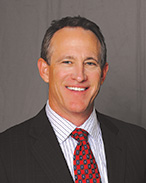TAKE THIS JOB AND … WALK AWAY?
Is there such a thing as a bad deck job? Regardless of your profession—whether you’re a builder or painter, a carpenter or contractor—one of the biggest questions Pros ask themselves is this: Is it in my best interest to take on this project?
The answer is probably less predictable than one might think. However, it always involves a personal choice based on several distinct factors, Rudh says.
“A difficult customer is probably the most challenging thing to deal with for a deck builder. Most building issues can be resolved with a patient and reasonable customer, and the proper budget,” he says.
While no one wants to turn down income, there are certain guidelines all professionals set for themselves. And it’s OK to say no.
“It is never a bad idea to walk away from a project if it isn’t a good fit for your company. Callbacks can be a nightmare and you don’t want to lose money on a project,” Rudh says. “As a builder, I would try to stay within my comfort zone when bidding a project. If you are working with unfamiliar products, you should adjust the price for the extra time it will take to learn how to install it. Your experience as a builder can help you identify other issues with a project that you might want to walk away from.”
Another reason to reassess whether you want to take on a deck project is the need to subcontract the work, says Rudh.
“Some deck builders prefer to stay away from projects that might require involving an engineer, such as building on a steep slope or cantilevering a deck out from a house’s internal framing,” Rudh says. “You might want to sub out work for certain types of projects such as roof decks or extremely high apartment building decks. You may not have the experience or the proper equipment to complete the job safely. You may also need to consult an engineer or architect for more advanced projects.”
For Rudh, the best advice is the same as in any profession: Do your homework.
“Learn about the building codes and deck-building products. Stay organized and learn from your mistakes. And always have a detailed contract before beginning a project.”
More










